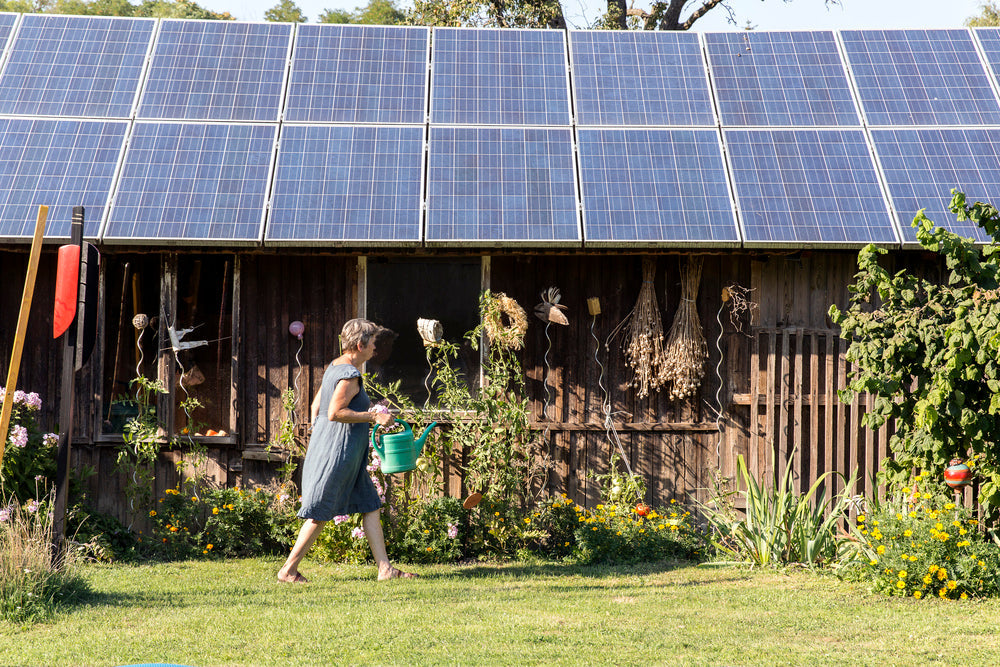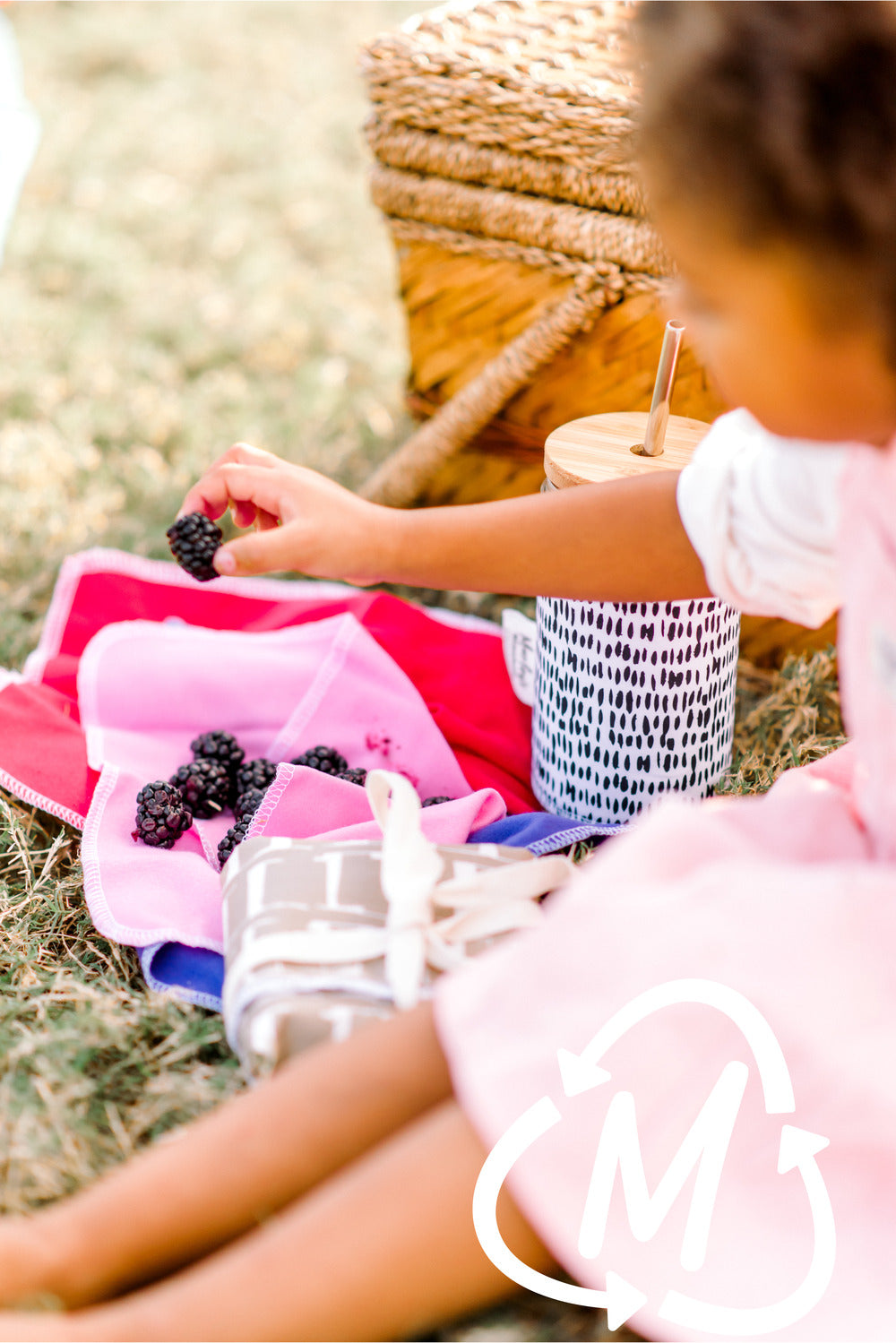The air’s getting crisper, the tomatoes are slowing down, and your once-bursting beds are starting to look a little sleepy. Yep—it’s time to wrap up the growing season. But before you reach for the plastic sheeting or toss those withered plants in the trash, let’s talk about how to close down your garden the sustainable way.
Whether you have a sprawling backyard setup or a few container plants on a patio, there are plenty of low-waste, plastic-free ways to put your garden to rest—and even set yourself up for a better, greener growing season next year.
Step Away From the Plastic
First things first: traditional garden shutdown methods often involve plastic in not-so-great ways. Black plastic sheeting is commonly used to block weeds or prep beds for spring, but it breaks down over time into microplastics that contaminate your soil. Single-use grow bags, plastic tarps, and synthetic mulch all create waste that sticks around long after your kale is gone.
Instead, opt for natural, biodegradable alternatives like straw, cardboard, or fabric row covers made from organic fibers. And when storing tools or equipment for the winter, skip the plastic bins and reuse what you have—buckets, repurposed crates, or even pillowcases make great storage options.

Compost Like a Pro
Spent plants, fallen leaves, and garden clippings don’t belong in the trash—they belong in your compost pile. This is nature’s recycling system at its finest, turning your garden leftovers into nutrient-rich soil for next year’s crops.
Pull up annuals, shake off any soil from the roots, and add them to your compost (unless they’re diseased—those should be disposed of responsibly). Leaves are garden gold in the compost bin, especially when chopped or shredded. Mix greens (like plant matter) and browns (like dry leaves or shredded paper) for the perfect decomposition balance.
Don’t have a compost system yet? This is a great time to start one. You can even begin with a DIY bin made from old pallets or a repurposed garbage can with ventilation holes.
Save Your Seeds (and Your Money)
Seed saving is the ultimate zero-waste gardening habit. It’s free, it cuts down on packaging, and it ensures your garden stays yours—with plants adapted to your unique soil and climate.
Let your best-performing plants go to seed (think tomatoes, beans, herbs, and flowers), then harvest and dry the seeds for next year. Store them in reused envelopes, paper packets, or small jars labeled with the plant name and date.
It’s an incredibly satisfying practice—and a great way to share with fellow gardeners. Nothing says “I love you” like a handful of homegrown seeds in a hand-decorated packet.
Mulch the Natural Way
Mulching protects your soil over the winter, keeps nutrients in place, and prevents weeds from throwing a winter party in your garden beds. But forget plastic weed barriers or synthetic fabrics—nature has better options.
Use what’s already around you: fallen leaves, grass clippings, straw, or even shredded paper. These natural mulches break down over time, enriching your soil instead of polluting it. Plus, they give your garden that cozy, tucked-in-for-the-season vibe.
Layer your mulch 2–3 inches thick and gently press it around the base of your perennials or across your veggie beds. Think of it as a blanket for your soil.

Wrap Up Your Garden Sustainably
Here’s a roundup of low-waste tools and tips to help you close down your garden the eco-friendly way:
-
UNpaper® Towels: Great for wiping muddy hands, cleaning tools, or drying off garden produce before storage
-
Compost Bin or Pile: Essential for turning garden waste into future fertilizer
-
Reusable Gloves & Tool Wraps: Ditch plastic-lined gloves and store tools in repurposed cloth rolls or bags
-
Natural Mulch: Use leaves, straw, or shredded paper to insulate and enrich beds
-
Seed-Saving Supplies: Envelopes, jars, or cloth bags to store and label saved seeds
-
Cardboard or Fabric Row Covers: Replace plastic tarps with breathable, biodegradable options
-
Wet Bag: For transporting dirty gloves, rags, or tools back inside without mess
-
Glass Jars for Produce Storage: Keep the last of your harvest fresh and plastic-free
-
DIY Garden Labels: Make your own from sticks, scrap wood, or metal—no plastic stakes needed
-
Cloth Rags or Wipes: Clean up your tools and hands without reaching for paper towels
Give Your Tools Some Love
Before packing everything away, give your tools a little TLC. Wipe down metal blades, scrub off dirt, and rub wooden handles with a touch of oil to prevent cracking. Skip synthetic sprays and use a homemade vinegar-and-water cleaner with a cloth rag or UNpaper Towel®.
Store tools in a dry place—preferably off the ground—and group similar items together so you’re not scrambling next spring.
Reflect, Plan, and Celebrate
Sustainable gardening is as much about rhythm and reflection as it is about planting and harvesting. As you close down your garden, take a few minutes to jot down what worked (and what didn’t). Which tomatoes thrived? Which beds needed more mulch? What would you love to grow next year?
Use a recycled notebook or digital journal to sketch out ideas for crop rotation, garden expansions, or seasonal decor you want to add next time around.
And don’t forget to celebrate. You nurtured a living ecosystem, fed yourself (maybe your neighbors, too), and did it in a way that supports the planet. That’s something to feel good about.
Need a few low-waste garden tools or cleanup helpers? Browse our bestsellers to stock up on reusables that keep your green thumb extra green—even in the off-season.



